#decolonize the university
Text
The pursuit of full humanity, however, cannot be carried out in isolation or individualism, but only in fellowship and solidarity; therefore it cannot unfold in the antagonistic relations between oppressors and oppressed. No one can be authentically human while he prevents others from being so. Attempting to be more human, individualistically, leads to having more, egotistically, a form of dehumanization.
— Paulo Freire, Pedagogy of the Oppressed.
Follow Diary of a Philosopher for more quotes!
#Paulo Freire#Pedagogy of the Oppressed#book quotes#quote#quotes#colonization#colonialism#imperialism#neocolonialism#decolonize the university#gradblr#studyblr#philosophy quotes#philosophy#chaotic academia#academia#capitalism#oppression#systems of opression
89 notes
·
View notes
Photo
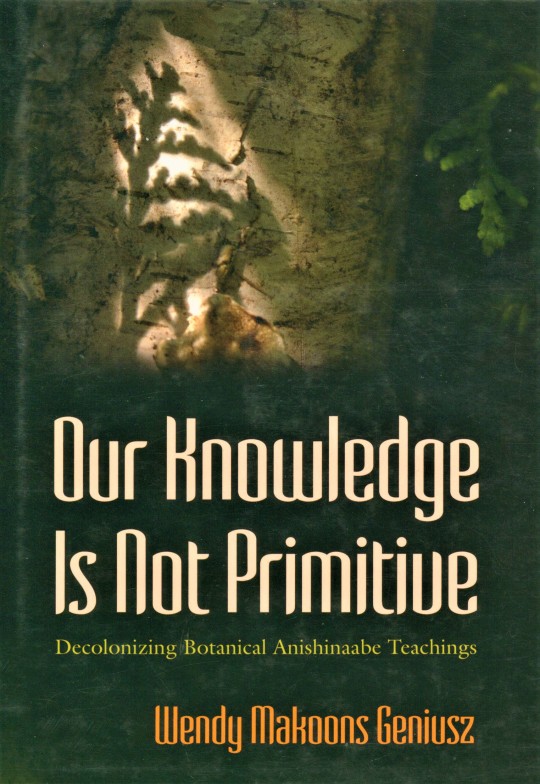

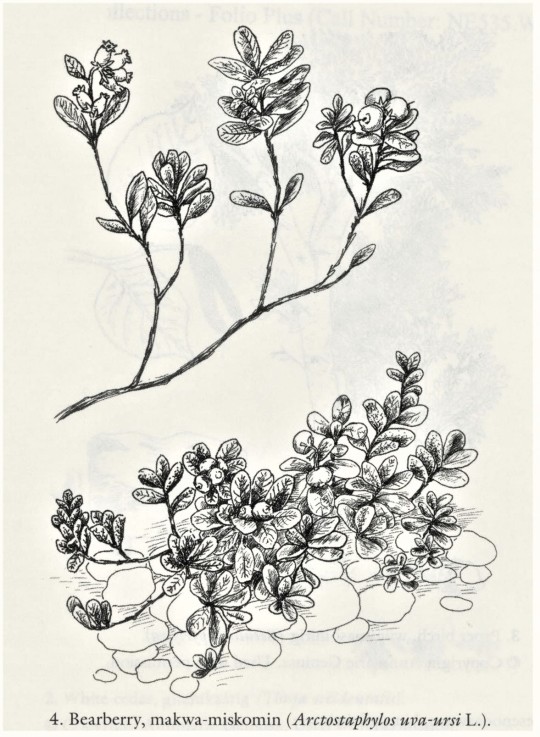


(Decolonizing) Science Saturday
This Saturday we are sharing some illustrations from our first edition copy of Wendy Makoons Geniusz’s book, Our Knowledge is Not Primitive: Decolonizing Botanical Anishinaabe Teachings. The botanical illustrations are provided by the author’s sister, Annmarie Geniusz. Published in 2009 by Syracuse University Press, the book is part of their series The Iroquois and Their Neighbors. Established by the press in 1975, the publication series’ primary scope is Haudenosaunee (Iroquois) scholarship, but it also focuses on uplifting the voice of Indigenous scholars’ work in contemplating their own culture.
As an academic raised in the Anishinaabe culture, Geniusz is particularly well suited to critically examine the Western scientific lens through which Indigenous botanical knowledge is often presented in the Academy. Genuisz, who got her undergraduate degree here at UWM, is the former director of the American Indian Studies program at University of Wisconsin-Eau Claire, and currently teaches Ojibwe language there.
View more of our Science Saturday posts here.
You can find more posts on our Native American Literature Collection here.
-Olivia, Special Collections Graduate Intern
#Science Saturday#Our Knowledge is Not Primitive#Wendy Makoons Geniusz#Wendy Geniusz#Annmarie Geniusz#Anishinaabe#Ethnobotony#Decolonization#Syracuse University Press#The Iroquois and Their Neighbors#Indigenous Scholars#Anishinaabe-gikendaasowin#Native American Literature Collection#olivia
4K notes
·
View notes
Text
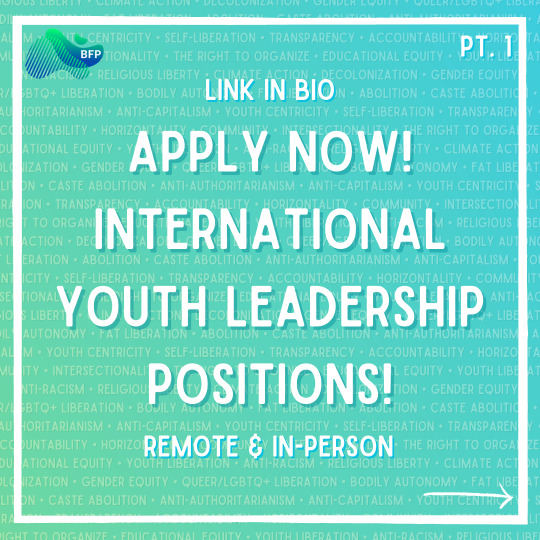

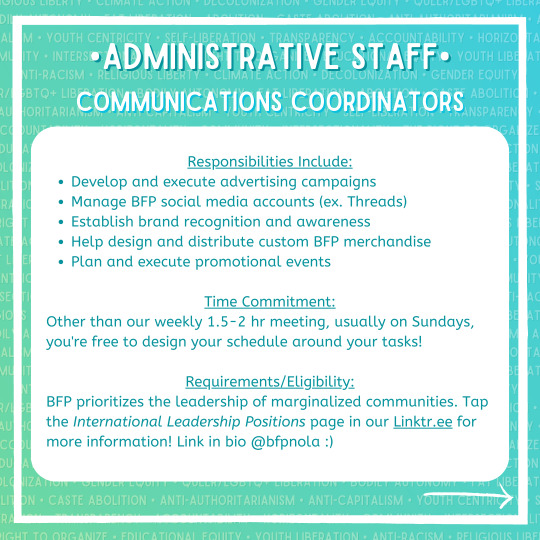
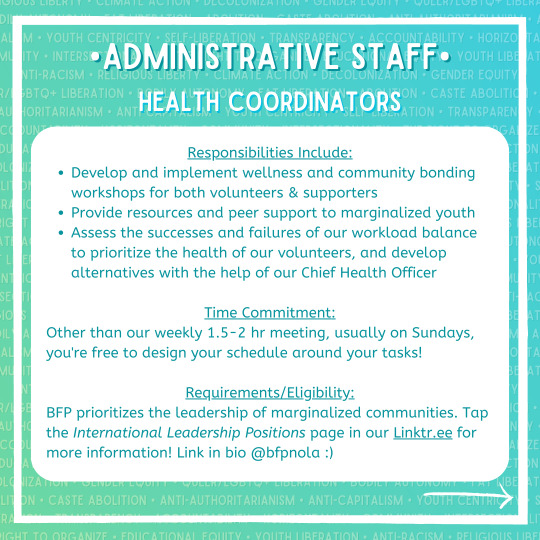
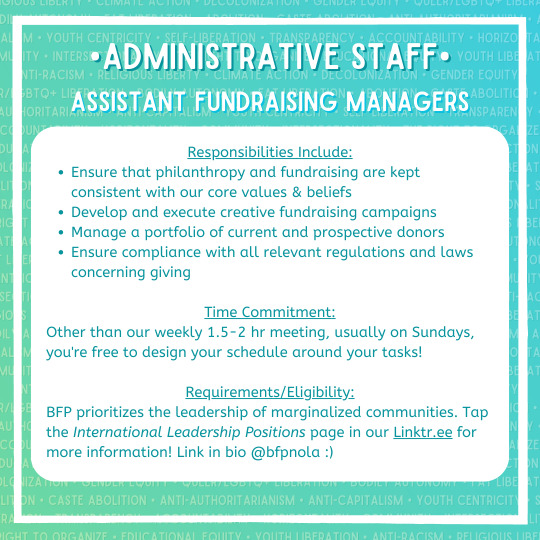
Hey! Better Future Program, Inc. (BFP) is officially looking for youth volunteers between the ages of 14 and 25 for our Administrative Staff! If you don't see a role that fits your interests, don't worry, we've got more positions listed in our Linktree!
And if you don't know who we are? Welcome! BFP is Black-, queer-, and woman-owned nonprofit, entirely run by youth! Since 2016, we've been accepting volunteers not just from Bulbancha (so-called New Orleans, Louisiana), but WORLDWIDE! Our mission is to globally expand peer-led political education, support, and imagination for marginalized youth!
To fulfill this goal, we offer over 3,000 free resources through our Liberation Library, design and execute mutual aid-based projects, and offer the safe space young activists need to ask questions and grow. If this sounds like something you'd be interested in, check out our International Youth Leadership Positions page in our bio!
Image description below.
[ID: All slides share the same background. There is a repeating list of BFP's guiding principles and core beliefs in translucent, all-white, capitalized letters. BFP's guiding principles include youth-centricity, self-liberation, transparency, accountability, horizontality, community, and intersectionality. BFP's core beliefs include the right to organize, educational equity, youth liberation, anti-racism, religious liberty, disability justice, climate action, decolonization, gender equity, queer/LGBTQ+ liberation, bodily autonomy, fat liberation, abolition, caste abolition, anti-authoritarianism, and anti-capitalism. A lime green to sky blue gradient overlays this list. A bold, white square frames the image with a white arrow pointing right in the bottom right corner.
Slide 1 reads: “LINK IN BIO. APPLY NOW! INTERNATIONAL YOUTH LEADERSHIP POSITIONS! REMOTE & IN-PERSON.” There is a BFP logo in the lefthand corner and the words “Part One” in the righthand corner, as this is the first of multiple posts showcasing open leadership positions.
Slide 2 reads: “Administrative Staff: Executive Assistants.
Responsibilities Include:
Co-facilitate communication and decision-making across volunteer committees
Note-taking during Zoom and Discord meetings on Notion
Interview and evaluate potential BFP applicants
Host virtual orientations for incoming youth volunteers
Time Commitment:
Other than our weekly 1.5-2 hr meeting, usually on Sundays, you're free to design your schedule around your tasks!
Requirements/Eligibility:
BFP prioritizes the leadership of marginalized communities. Tap the International Leadership Positions page in our Linktr.ee for more information! Link in bio @bfpnola :)"
Slide 3 reads: "Administrative Staff: Communications Coordinators.
Responsibilities Include:
Develop and execute advertising campaigns
Manage BFP social media accounts (ex. Threads)
Establish brand recognition and awareness
Help design and distribute custom BFP merchandise
Plan and execute promotional events
Time Commitment:
Other than our weekly 1.5-2 hr meeting, usually on Sundays, you're free to design your schedule around your tasks!
Requirements/Eligibility:
BFP prioritizes the leadership of marginalized communities. Tap the International Leadership Positions page in our Linktr.ee for more information! Link in bio @bfpnola :)"
Slide 4 reads: "Administrative Staff: Health Coordinators.
Responsibilities Include:
Develop and implement wellness and community bonding workshops for both volunteers & supporters
Provide resources and peer support to marginalized youth
Assess the successes and failures of our workload balance to prioritize the health of our volunteers, and develop alternatives with the help of our Chief Health Officer
Time Commitment:
Other than our weekly 1.5-2 hr meeting, usually on Sundays, you're free to design your schedule around your tasks!
Requirements/Eligibility:
BFP prioritizes the leadership of marginalized communities. Tap the International Leadership Positions page in our Linktr.ee for more information! Link in bio @bfpnola :)"
Slide 5 reads: "Administrative Staff: Assistant Fundraising Managers.
Responsibilities Include:
Ensure that philanthropy and fundraising are kept consistent with our core values & beliefs
Develop and execute creative fundraising campaigns
Manage a portfolio of current and prospective donors
Ensure compliance with all relevant regulations and laws concerning giving
Time Commitment:
Other than our weekly 1.5-2 hr meeting, usually on Sundays, you're free to design your schedule around your tasks!
Requirements/Eligibility:
BFP prioritizes the leadership of marginalized communities. Tap the International Leadership Positions page in our Linktr.ee for more information! Link in bio @bfpnola :)"
/End ID.]
#reaux speaks#volunteer#anti capitalism#abolition#mad liberation#bipoc#youth liberation#queer#trans#university#high school#new orleans#international#decolonization#communism#socialism#education#leftist#apply now#hiring
41 notes
·
View notes
Text
would you guys want to see a series i'm tentatively calling "confessions of a burnt-out gifted kid"? it would be stuff like this post. just generally being a lil idiot on the internet + talking ab how the school system/capitalism/lack of mental health support/etc. collectively failed us.
*disclaimer: in my opinion, the notion of the “gifted kid” as it exists right now is pretty outdated, and i'm only using it here b/c it is the most convenient term for the time being. the conception of the "gifted kis" (and its associated meanings) rewards colonial + capitalist + ableist ideologies regarding what is considered “knowledge” or “intelligence”. i was regarded as “gifted” because i masked my neurodivergence and i had the privilege of being provided with the time + resources + support necessary to be a “good student” in the eyes of my teachers. this was likewise influenced by certain assumptions/privileges stemming from my whiteness (which is further intertwined with the ongoing colonial project). i’m just using the term here to describe my experiences with being designated “gifted” and put into "gifted" programs as a child, etc. and the effects that had on me.
for more info regarding this, please see:
Parekh, Gillian. "Chapter 6: Implicating Gifted and Talented Education." Ableism in Education : Rethinking School Practices and Policies. Taylor & Francis. 2023.
(^^ if you want to read this and can't access it, lmk!)
#confessions of a burnt-out gifted kid#gifted kid burnout#gifted kid#gifted kid problems#academia aesthetic#decolonizing academia#decolonization#anti ableism#anti capitalism#academia#higher education#university aesthetic#dark acadamia aesthetic#dark academia#chaotic academia#adhd#actually adhd#leftism#leftist#polls#poll#academia polls#school life#gifted kid syndrome#gifted kid shit#gifted kid things
20 notes
·
View notes
Text
New stats post!
🦇25 y o woman, finnish
🦇 applying for PhD (in literature) september 2024
🦇 graduated, masters degree (literature) on july 23
🦇 learning norwegian (i should pick up a book in norwegian and attempt to read it) my lovely partner is norwegian and i want to speak his language, so far i guess i'm "survives basic conversation if talked to slowly"
🦇 learning korean (writing system so far)
🦇 likes reading and studying (for fun)
🦇other hobbies: being in nature, going to metal/punk/goth events, being tired at home
🦇 trying to find a "normal" job so i can then study in peace without money stress
Distant future studt plans:
🦇 languages i want to learn: ukrainian, old norse, church slavic, polish, german (revisiting), spanish
🦇 fields of study i'm interested in: decolonial study, literature, art history, history (medieval, iron age, non-european/western) feminism, posthumanism, philosphy, violence studies (basically "why are some people violent/do crimes and how it can be prevented")
#university student#uni life#applying for phd#student life#studentblr#studyspo#studyblr#studyblog#literature analysis#literature student#classic literature#norsk langblr#learning korean#language learning#study motivation#classic academia#dark academia#academia#decolonial study#decolonization#history studyblr#iron age history#medieval history#clothing history
11 notes
·
View notes
Text
Both Puar and Larson have signed an online manifesto, Palestine & Praxis, in which they publicly assert and commit themselves to advancing a specific political ideology. As our letter to Eisgruber explains, signers are “committed to a particular political agenda.” Signers of the manifesto affirm that all their work, in the classroom and on campus centers the goals of the manifesto, to:
—Never “conduct research in Palestine or on Palestinians without a clear component of political commitment;
—Ensure that Palestinians are “sources of authority ”simply by virtue of being Palestinians;
—Advance the claim that “Israel’s sovereignty over its territory is founded on belief in the racial supremacy of Jewish-Zionist nationals”;
—Commit to “pressuring the academic institutions with which they are associated for the Boycott of Israel” and “center” the accounts of people because of who they are and not because of the validity of their analysis.
Many defenders of the course, the book and the professor, including President Eisgruber, have thrown on the sheltering cloak of “academic freedom” to justify their refusal to do anything about Larson’s course and Puar’s book. What this defense misses is that what Puar has written, and what Larson is providing to her students is not entitled to the shield of academic freedom because it is not “academic” at all: It is blatantly political.
In addition to the abandonment of truth as a goal, as a source, or as an inspiration, the activity of this professor and the use of this book violates the Internal Revenue Service Code section governing tax-exempt entities such as Princeton. IRS regulations, rephrased and enshrined by Princeton’s own internal rules, make clear that at all tax-exempt non-profit corporations, of which Princeton is one, “Studies which in and of themselves might be bona fide academic research might also be designed for partisan political purposes. The University’s resources cannot be used for such work nor to advance other causes not directly related to the mission of the University, unless it is paid for from non-University funds and at the regular rate plus the standard surcharge applicable to such work.”
#princeton university#jasbir puar#academic freedom#satyel larson#decolonizing trauma studies#the right to maim
25 notes
·
View notes
Text
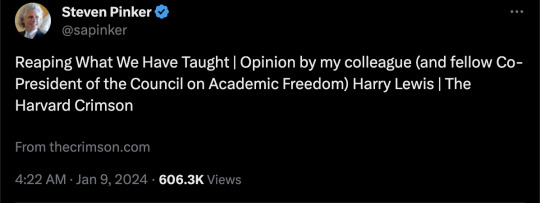
By: Harry R. Lewis
Published: Jan 8, 2024
Let’s go back to how Harvard’s current crisis began: charges of antisemitism.
Why antisemitism seems to be a problem at Harvard and other universities is one of the still-unanswered questions that precipitated the University’s downward spiral.
But, it surely is not Claudine Gay’s fault. It is not because Harvard admits antisemitic students or hires antisemitic faculty. No one is suggesting there are comparable antisemitism problems in other kinds of institutions — such as hospitals or libraries — so there must be something that uniquely happens in universities.
That something must be the source of our woes.
* * *
Unapologetic antisemitism — whether the incidents are few or numerous — is a college phenomenon because of what we teach, and how our teachings are exploited by malign actors.
The Harvard online course catalog has a search box. Type in “decolonize.” That word — though surely not the only lens through which to view the current relationship between Europe and the rest of the world — is in the titles of seven courses and the descriptions of 18 more.
Try “oppression” and “liberation.” Each is in the descriptions of more than 80 courses. “Social justice” is in over 100. “White supremacy” and “Enlightenment” are neck and neck, both ahead of “scientific revolution” but behind “intersectionality.”
Though word frequency is an imperfect measure and the precise counts are muddied by duplicate numberings and courses at MIT, this experiment supports the suspicion that the Harvard curriculum has become heavily slanted toward recent fashions of the progressive left.
For example, “intersectionality” was almost unattested before the year 2000, while published uses of “decolonize” have more than tripled since then.
Merchants of hate are repurposing these intellectual goods that universities are producing.
When complex social and political histories are oversimplified in our teachings as Manichaean struggles — between oppressed people and their oppressors, the powerless and the powerful, the just and the wicked — a veneer of academic respectability is applied to the ugly old stereotype of Jews as evil but deviously successful people.
While Harvard cannot stop the abuse of our teaching, we, the Harvard faculty, can recognize and work to mitigate these impacts.
The political bias in our faculty is now widely accepted. One solution is to use a kind of affirmative action program for conservative thinkers to change the faculty, but that idea is noxious and misses a crucial point.
Professors should not be carrying their ideologies into the classroom. Our job as teachers of “citizens and citizen-leaders” is not to indoctrinate students, but to prepare them to grapple with all of the ideas they will encounter in the societies they will serve.
Instead, individual faculty might diversify what they teach. Committees and departments could enforce a standard that curricula exhibit intellectual diversity and a variety of agreed-upon topics and techniques.
If done correctly, it would not infringe upon individual academic freedom to allow our faculty colleagues to have a stronger role in shaping each others’ syllabi and curricula. Nor would it be improper for the Board of Overseers — with its elaborate Visiting Committee structure — to weigh in on the evident political biases and ideological vectors in our educational program.
As obvious as this all may sound, it would be a big change from the present.
Over the fifty years I have been on the Harvard faculty, the expectation has evolved that individual Harvard professors are free to teach whatever they wish to whomever they wish. It was once the norm for faculty to rotate through courses of unpredictable size and with stable curricula, but now enrollments are predetermined quite rigorously and even introductory courses may change their reading lists and lecture topics drastically when new professors take charge.
Curricular committees theoretically vet these courses, but not annually, and not for the kinds of political biases that have skewed undergraduate education. The result is to favor the hip, current, and “relevant,” over foundational learning — what instructors personally believe to the exclusion of what students should learn to participate knowledgeably in the world outside our gates.
* * *
The leftward shift of Harvard’s faculty deserves scrutiny. Judicious changes to the hiring and promotion process can thwart intellectual inbreeding — just as the current tenure system, now tired and manipulable, was once an innovative revamp of a system that resulted in ethnic and gender homogeneity. Now is the time to change a system that will take decades to alter the composition of the faculty.
But there is no need to wait for that reform.
The goal is not to give students a choice between courses reflecting different ideologies. Harvard should instead expect instructors to leave their politics at the classroom door and touch both sides of controversial questions, leaving students uncertain where their sympathies lie. Professors should have no more right to exclude from their teaching ideas with which they disagree than students should expect to be shielded from ideas they find disagreeable.
All that is required is for faculty to exhibit some humility about the limits of their own wisdom and embrace the formula for educational improvement voiced by Le Baron R. Briggs, a Harvard dean, more than a century ago: “increased stress on offering what should be taught rather than what the teachers wish to teach.”
Harry R. Lewis ’68 is a Gordon McKay Research Professor of Computer Science. He served as Dean of Harvard College from 1995 to 2003.
#Harry R. Lewis#Harvard#Harvard University#orthodoxy#decolonize#decolonization#genocide#ethnic cleansing#antisemitism#academic corruption#academic freedom#higher education#ideological corruption#dogma#viewpoint diversity#religion is a mental illness
11 notes
·
View notes
Text
fucked up how i can write academic theory in three languages but only get paid for one.
#i'd say decolonize the university but the only way to decolonize the university is to abolish it#phenakistoskope.txt
4 notes
·
View notes
Text
How is “criticizing systems of power and imperial systems” too political. How is a theme analyzing power and resistance too “insensitive” to what’s happening in “politics right now”. Why is no one willing to take a fucking stance against genocide. Fuck off.
#i love love loveee going to a liberal university#emphasis on the liberal#where they pretend to decolonize and do land acknowledgements and say residence instead of res#but refuse to fucking say free palestine
5 notes
·
View notes
Text
The point of departure of the movement lies in the people themselves. But since people do not exist apart from the world, apart from reality, the movement must begin with the human-world relationship. Accordingly, the point of departure must always be with men and women in the "here and now," which constitutes the situation within which they are submerged, from which they emerge, and in which they intervene. Only by starting from this situation—which determines their perception of it—can they begin to move. To do this authentically they must perceive their state not as fated and unalterable, but merely as limiting—and therefore challenging.
— Paulo Freire, Pedagogy of the Oppressed.
Follow Diary of a Philosopher for more quotes!
#=Paulo Freire#Pedagogy of the Oppressed.#book quotes#quote#quotes#colonialism#colonization#imperialism#empire#gradblr#studyblr#chaotic academia#philosophy quotes#philosophy#academia#dark academia#post colonial studies#decolonial practices#decolonize the university
0 notes
Text
The Impact of the War in Ukraine on the Indigenous Small-numbered Peoples’ Rights in Russia
Ekaterina Zmyvalova
Umea University, Sweden
Abstract
This article discusses how the war in Ukraine, started by Russia, impacts the lives of Russian Indigenous small-numbered peoples. First, one can observe Russia’s growing disregard for its international legal obligations. Second, the Russian State is continuously introducing new sanctions against persons and organizations who do not support the Russian regime. Third, the pressure on Indigenous peoples’ representatives is increasing. Fourth, a significant number of members of Indigenous small-numbered peoples actively participate in the war due to, inter alia, socio-economic problems and lack of reliable and objective information about it. Fifth, there is a decline in international cooperation with the Indigenous small-numbered peoples of Russia. Finally, it is visible that the role of Indigenous peoples, including Russian Indigenous peoples, in international decision-making changes.
Keywords:Indigenous small-numbered peoples of Russia, war, Ukraine, human rights
Correspondence to: Ekaterina Zmyvalova, e-mail: [email protected]
The war in Ukraine, started by the Russian Federation (RF), has further complicated the fulfillment of the human rights of Russian citizens, inter aliathe rights of Indigenous small-numbered peoples of Russia. Among these various rights are the right to freedom of expression, guaranteed by Article 19 of the International Covenant on Civil and Political Rights (ICCPR), the right to enjoy their culture, regulated in Article 27 of the ICCPR, and the right to life, liberty and security stipulated by Articles 2 and 5 of the European Convention on Human Rights.1These same rights are also regulated by other international legal acts. Article 69 (1) of the Constitution of the RF guarantees the rights of Indigenous small-numbered peoples according to the universally recognized principles and norms of international law and international treaties of the RF. In addition to Russia’s international legal obligation to fulfill these rights, Russian federal legislation also provides for these rights.2
The war has triggered different reactions among the 47 Indigenous small-numbered peoples recognized as such by the Russian State.3State representatives supporting Indigenous peoples’ organizations have supported the war in Ukraine.4Some other representatives of Indigenous peoples have condemned the Russian Federation’s aggression.5,6
This review focuses on some of the significant impacts on the lives of Indigenous peoples in Russia caused by the war in Ukraine.7These impacts include: Russia’s growing disregard for its international legal obligations; the introduction of new sanctions against persons and organizations who do not support the Russian regime and increased pressure on Indigenous peoples’ representatives; the active participation of Indigenous small-numbered peoples in the war due to, inter alia, socio-economic problems and the lack of reliable and objective information about the war in Ukraine; and a decline in international cooperation with the Indigenous small-numbered peoples of Russia. In addition, I will address the issue of the changing role of Indigenous peoples, including Russian Indigenous peoples, in international decision-making.
Russia’s growing disregard for its international legal obligations
Article 15 of the Russian Constitution states that universally recognized principles and norms of international law as well as international agreements of the Russian Federation should be an integral part of its legal system. Nevertheless, a growing disregard by Russia for its international legal obligations and the prioritization of Russian law over international law has been observed. One example of this tendency (among others) is the relationship between the RF and the European Court of Human Rights (ECHR). A number of major amendments to the Russian Constitution were proposed in January 2020, approved through a national vote and took effect in July 2020, including an amendment to Article 79 concerning the decisions of the international bodies which are no longer subject to enforcement in the RF. The last sentence of the amended Article reflects this idea. The Article reads:
The RF can participate in international associations and delegate to them part of its powers in accordance with international treaties of the RF if this does not entail limitations on the rights and freedoms of man and citizen and does not contradict the foundations of the Constitutional structure of the RF. Decisions of the international bodies adopted on the basis of the provisions of international treaties of the RF and which in their interpretation contradict the Constitution of the RF, are not subject to enforcement in the RF.
Although the amendment does not concern Indigenous peoples directly, it is relevant to mention here because Article 79 concerns international bodies to which Indigenous small-numbered peoples of Russia could appeal to protect their human rights. One of these bodies is the ECHR.8,9
The war in Ukraine has negatively impacted relations between Russia and the ECHR. On February 25, 2022 the Committee of Ministers suspended Russia’s membership in the Council of Europe because of Russia’s aggression against Ukraine.10On March 15, 2022 the Parliamentary Assembly of the Council of Europe manifested its Opinion recommending that the Committee of Ministers “should request the Russian Federation to immediately withdraw from the Council of Europe”.11On March 16, 2022 the Committee of Ministers adopted the decision to immediately exclude Russia from the European Council.12On March 15, 2022 the RF “informed the Secretary General of its withdrawal from the Council of Europe in accordance with the Statute of the Council of Europe and of its intention to denounce the European Convention on Human Rights”.13In June 2022, the President of Russia signed the laws that ended ECHR’s jurisdiction in Russia.14According to these laws, ECHR judgments coming into force after March 15, 2022 are not subject to enforcement in the RF and shall not be grounds for revisions of criminal cases.
Russia’s withdrawal from the Council of Europe may prove drastic for the protection of human rights in Russia.15Among other groups, this concerns the protection Indigenous peoples’ rights. Previously it was possible to apply to the ECHR for the protection of human rights once national mechanisms had been exhausted. At present, this alternative seems to have disappeared.
The introduction of new sanctions and increased pressure on Indigenous peoples
It is worth mentioning that Russia is continuously introducing new sanctions against those persons and organizations who do not support the regime. Among these sanctions one can single out administrative measures (Article 20.3.3 of Code of Administrative Offences of the RF) and criminal responsibility (Article 280.3 of Criminal Code of the RF) for “public actions directed at discreditation of the use of the armed forces of the Russian Federation aimed at the protection of the interests of the Russian Federation and its citizens, maintenance of the international peace and safety or carrying out their function by the State bodies of the Russian Federation aiming at the above mentioned purposes”. Criminal responsibility “for public dissemination of deliberately false information about the use of the armed forces of the Russian Federation and carrying out their functions by the State bodies of the RF” (Article 207.3 of Criminal Code) results in different types of punishment, with fifteen years of deprivation of freedom being the maximum punishment. A new law “On the Control of the Activities of Persons under Foreign Influence” defines terms such as “foreign agent”, “foreign impact”, “foreign source” and “political actor”. Persons under foreign influence are forbidden to teach at State and municipal educational organizations, or to carry out any educational activity with minors.16Moreover, Article 275.1 has been added to the Criminal Code of the RF. This article “Confidential cooperation services of foreign States” mandates punishment in cases of cooperation with foreign intelligence agencies as well as common international or foreign organizations or its representatives.
Thus, in addition to the already existing punitive mechanisms, the State has introduced other legal sanctions to the Code of Administrative Offences and to the Criminal Code regarding those persons and organizations whose opinion about the war in Ukraine differ from the State’s position. This has certainly had a negative impact on human rights, including Indigenous peoples’ rights, in Russia. The introduction of these sanctions has resulted in a lack of freedom of expression, liberty, and security among the Indigenous populations in Russia. Consequently, fearing for their safety some Indigenous small-numbered people have been silenced or have chosen to leave their lands.
Russia’s policy of intimidation has also been observed in international organizations such as the United Nations. In July 2022 at the XV Session of the UN Expert Mechanism on the Rights of Indigenous Peoples in Geneva, Yana Tannagasheva, a representative of Indigenous peoples of Russia who had reported on human rights violations in Russia, was aggressively confronted by a representative of the Russian state delegation. This confrontation raised critical public opinion. For example, Christoph Wiedmer, co-director of the Society for Threatened Peoples, was extremely shocked by this public intimidation of an Indigenous peoples’ representative by a representative of the Russian government. According to him, Russia has crossed a red line. In his opinion, the Russian government is actively intimidating civil society activists from Russia and communication with Russian Indigenous peoples has become almost impossible.17
Thus, in addition to newly introduced legal sanctions against those who disagree with the war in Ukraine, the Russian State is using intimidating measures against people and organizations, including Indigenous small-numbered peoples. The Tannagasheva case is one of many examples of this kind of State pressure.
Active participation of Indigenous small-numbered peoples in the war
As previously stated there are 47 Indigenous small-numbered peoples recognized in Russia. The Russian legal term ‘Indigenous small-numbered peoples’ differs from the international legal term ‘Indigenous peoples’ in that it entails a numerical constraint. The Indigenous small-numbered people’s group shall not include more than 50 000 persons. Some groups are substantially smaller in number, encompassing merely a few hundred members. It has been officially recognized that a large number of the Russian soldiers killed in Ukraine are from Indigenous peoples groups.18,19There are many reasons for Indigenous peoples participating in this war, among them economic reasons (poverty and the need for economic rewards for participation in the war) and a lack of reliable and objective information about the war in Ukraine.20The death of Indigenous peoples in the war is a tragedy, but this does not erase personal responsibility for participation in the war. According to human rights activist and former member of the United Nations Forum on Indigenous Issues, Oliver Loode, the Russian army mirrors the socio-economic problems of the State, especially where Indigenous small-numbered peoples reside. He observes that most of the army recruits come from peripheral regions where unemployment, drug addiction and criminality are rampant and thus recruitment to the army becomes the only possibility to survive.21Another activist, Sires Boliaen, has observed that the share of Indigenous peoples in the total number of deaths in the war is disproportionately high, based on Russian statistics and numbers provided by Russian scientists.22To conclude, the war in Ukraine has made Indigenous peoples even more vulnerable and further worsened their unprotected position.23
International cooperation of Indigenous peoples of Russia with their international partners
The war in Ukraine has impacted the cooperation of Indigenous peoples of Russia with their international partners. Currently it is hard for international organizations to trust Russian Indigenous people’s organizations because of their differing positions on the war.24One example of Indigenous peoples of Russia whose cooperation with international colleagues has been impacted by the war in Ukraine is the Sámi peoples. The Sámi are the Indigenous peoples of four countries, namely Russia, Finland, Sweden, and Norway. Traditional Sámi lands are called Sápmi. The Sámi population resided in this territory before the establishment of State borders. The open support of the war in Ukraine by the Russian Sámi organization, namely Kola Sámi Association, has triggered negative reactions from the international Sámi community. For example, the Sámi Council, which is the body which brings representatives of all four Sámi countries together, has put cooperation with Russian member organizations on hold, until the next Sámi Council meeting.25For the Russian Sámi, membership in the Sámi Council has been crucial because they have received substantial support for their cultural projects from this organization. Their share of applications for financial support from the Council has always been the highest compared to the other members.26Thus, suspension of their membership in this organisation has had a significant negative impact on the protection of culture and language of the Russian Sámi.
Another important cooperation arena for the Indigenous peoples of Russia with international partners, is the Arctic Council. Six Indigenous organizations, including the Russian Association of Indigenous People of the North-RAIPON, are permanent members of the Arctic Council.27Due to the special status of Indigenous organizations within the Arctic Council, this is a forum where Indigenous peoples can make their voices heard. At present, the RF is serving as the chair of the Arctic Council until 2023. Due to the war in Ukraine, the Arctic Council has postponed all official meetings of the Council and its subsidiary bodies until further notice.28The decision to do so was made by the member states (except Russia) without consulting the Indigenous organizations who are also permanent participants of the Arctic Council.29This decision negates and undermines the special status Indigenous organizations have had in the Council, and may substantially affect the participation of Indigenous organizations in the international arena. Moreover, the suspension of the official activities of the Arctic Council has had a negative impact on the activities of the Indigenous peoples of the Russian Arctic.
The present review has cast a light on some of the impacts on Indigenous peoples of Russia caused by the war in Ukraine. Among these impacts are Russia’s disregard of international legal obligations, sanctions against opposing opinions, making the Russian Indigenous peoples even more vulnerable in addition to their unprotected position due to their participation in the war, as well as a substantial decrease in international cooperation, which has negatively impacted the development of languages, culture, and other aspects of life of the Indigenous small-numbered peoples of Russia.
NOTES
* I would like to express my gratitude to the Sámi rights activist Andrei Danilov who found an opportunity to discuss the situation of Indigenous peoples’ rights in Russia with me in connection with this review.
1. Russia ratified ICCPR: Decree of the USSR Supreme Soviet Presidium N 4812-VIII of September 18, 1973 ‘About the ratification of International Covenant on Economic, Social and Cultural Rights and International Covenant on Civil and Political Right’. Russia ratified European Convention on Human Rights: FL N 54-ФЗ of March 3, 1998 ‘On Ratifying the Convention for the Protection of Human Rights and Fundamental Freedoms and Protocols Thereto’.
2. For example, among other acts, the Constitution guarantees the right to freedom of expression (Article 29), cultural rights (Article 69 (2)), the right to life (Article 20), liberty and personal integrity (Article 22 (1)).
3. Regulation of the Government of the RF N 255 of March 24, 2000 ‘On the Unified List of the Indigenous Small-Numbered Peoples of the Russian Federation’.
4. For the full list of Indigenous organizations supporting the war in Ukraine see: “Ассоциация КМНСС и ДВ РФ выступила в поддержку Президента нашей страны В. В. Путина” [“RAIPON supported President of our country V. V. Putin”], https://raipon.info/press-tsentr/novosti/assotsiatsiya-kmnss-i-dv-rf-vystupila-v-podderzhku-prezidenta-nashey-strany-v-v-putina-/(accessed July 11, 2022).
5. Dan Robert Larsen, “Russisk sameleder: – Vi er mot krigen i Ukraina,” https://www.nrk.no/sapmi/samisk-organisasjon-i-russland-erklaerer-motstand-mot-krigen-i-ukraina-1.15929090?fbclid=IwAR2mn72ZTqSpctQ7NTO01m-2vOUIGszAJ1PQ1xjtSdtOOWF5j6tz5iMPQak(accessed July 13, 2022).
6. Thomas Nilsen, “War protesting Sámi activist from Kola seeks asylum in Norway,” https://thebarentsobserver.com/en/life-and-public/2022/04/sami-activist-and-war-protester-kola-seeks-asylum-norway(accessed July 13, 2022).
7. Other opinions regarding the impact of the war in Ukraine on Indigenous small-numbered peoples of Russia can be found here: Dmitry Berezhkov, “How does the militarization of Russia’s internal politics, social life and economy affect indigenous peoples’ development in Russia?,” 15th session of the Expert Mechanism on the Rights of Indigenous Peoples. July 4, 2022, Geneva, https://indigenous-russia.com/archives/22882(accessed July 14, 2022).
8. For example, the ECHR accepted for consideration a complaint from a Russian Indigenous people’s organization called Center for Support of Indigenous Peoples of the North. ECHR considered the complaint of the Center together with other complaints from non-governmental organizations and ruled regarding the “Foreign Agents” law in Russia. See: Judgment of the ECHR, Case of Ecodefence and Others v. Russia, https://hudoc.echr.coe.int/eng?i=001-217751(accessed July 21, 2022).
9. For more analysis see: Ekaterina Zmyvalova, “Human Rights of Indigenous Small-Numbered Peoples in Russia: Recent Developments,” Arctic Review on Law and Politics11 (2020): 350–352.
10. Decision of the Committee of Ministers CM/Del/Dec(2022)1426ter/2.3 of February 25, 2022, ‘2.3 Situation in Ukraine – Measures to be taken, including under Article 8 of the Statute of the Council of Europe,’ https://search.coe.int/cm/Pages/result_details.aspx?ObjectID=0900001680a5a360(accessed July 18, 2022).
11. Parliamentary Assembly Opinion N 300 (2022), ‘Consequences of the Russian Federation’s aggression against Ukraine,’ https://pace.coe.int/en/files/29885/html(accessed July 18, 2022).
12. “The Russian Federation is excluded from the Council of Europe,” https://www.coe.int/en/web/portal/full-news/-/asset_publisher/y5xQt7QdunzT/content/the-russian-federation-is-excluded-from-the-council-of-europe(accessed July 18, 2022).
13. Ibid.
14. “В законодательство внесены изменения в связи с признанием не подлежащими исполнению в России вступивших в силу после 15 марта 2022 года постановлений ЕСПЧ” [“Amendments due to recognition of the judgments of ECHR unenforceable in Russia after March 15, 2022 were introduced in the legislation”], http://kremlin.ru/acts/news/68648(accessed July 18, 2022).
15. The situation can get worse. While ratifying the European Convention on Human Rights Russia also signed and ratified Protocol N 6 of it in 1997. Due to this fact a moratorium on the death penalty was introduced in Russia. After Russia’s withdrawal from European Convention of Human Rights this punishment can be reinforced in the RF.
16. Федеральный закон N 255-ФЗ от 14 июля 2022 ‘О контроле за деятельностью лиц, находящихся под иностранным влиянием’ (FL N 255-ФЗ of July 14, 2022 ‘On the Control of the Activities of Persons Under Foreign Influence’).
17. Sarah Zeines, “Russian Indigenous Spokeswoman Faces Intimidation at the Human Rights Council,” https://us19.campaign-archive.com/?u=b3372615f7a316d6426d48fc4&id=7f77e87a90(accessed July 13, 2022).
18. By no means do I want to belittle the suffering of Indigenous peoples of Ukraine.
19. “Заявление в ООН: Москва уничтожает в мясорубке войны коренные народы” [“Statement in the UN: Moscow destroys indigenous peoples in the meat grinder of war”], https://idel-ural.org/archives/syres-bolyaen-prizval-oon-obratit-vnimanie-na-ispolzovanie-moskvoj-korennyh-narodov-v-vojne-protiv-ukrainy/?fbclid=IwAR2a5tkYDY6UyHKd8UGiJO4iL0DI5ZZ8F5dZoB_q5jMvEnVqo2s1lfaJ7Lk(accessed July 13, 2022).
20. The issue of misinformation deserves special attention. At present, strict censorship has been introduced in the RF regarding spreading information about the war in Ukraine. For example, on June 30, 2022 the deputies of the State Duma approved a law that allows the Public Prosecutors Office to close sources of mass media publishing ‘fake’ news or news ‘discrediting’ the use of the armed forces of the Russian Federation or ‘urge sanctions’. See: Федеральный закон N 277-ФЗ от 14 июля 2022 ‘О внесении изменений в отдельные законодательные акты Российской Федерации’ (FL N 277-ФЗ of July 14, 2022 ‘On Introducing Amedments into some Legal Acts of the Russian Federation’).
21. “Особое 9 мая. “Раньше Кремлю было достаточно воспевать славные подвиги предков, теперь — надо побеждать самим”’ [“Special 9th of May. ‘It was enough for the Kremlin to anthem the glorious deeds of ancestors, now- they have to win by themselves”], https://www.idelreal.org/a/31838711.html(accessed July 13, 2022).
22. “Заявление в ООН: Москва уничтожает в мясорубке войны коренные народы” [“Statement in the UN: Moscow destroys Indigenous peoples in the meat grinder of war”], https://idel-ural.org/archives/syres-bolyaen-prizval-oon-obratit-vnimanie-na-ispolzovanie-moskvoj-korennyh-narodov-v-vojne-protiv-ukrainy/?fbclid=IwAR2a5tkYDY6UyHKd8UGiJO4iL0DI5ZZ8F5dZoB_q5jMvEnVqo2s1lfaJ7Lk(accessed July 13, 2022).
23. Дмитрий Бережков, “Влияние войны на коренные народы России” [Dmitry Berezkov, “Impact of war on Indigenous peoples of Russia”], https://indigenous-russia.com/archives/22240(accessed July 13, 2022).
24. Ibid.
25. Christina Henriksen, “Cooperation with Russian side on hold,” https://www.saamicouncil.net/news-archive/cooperation-with-russian-side-on-hold(accessed July 11, 2022).
26. Personal communication with Andrei Danilov (March 15, 2022).
27. “About the Arctic Council,” https://www.arctic-council.org/about/(accessed July 15, 2022).
28. “Arctic Council,” https://www.arctic-council.org/(accessed July 13, 2022).
29. Barry Scott Zellen, “The Arctic Council Pause: The Importance of Indigenous Participation and the Ottawa Declaration,” https://www.arcticcircle.org/journal/the-importance-of-indigenous-participation-and-the-ottawa-declaration(accessed July 13, 2022).
Back to article page
OTHER FORMATS
PDF
EPUB
XML
PUBLISHED
2022-08-18
ISSUE
Vol. 13 (2022)
SECTION
Debates on Arctic Law and Politics
KEYWORDS:
Indigenous small-numbered peoples of Russia, war, Ukraine, human rights
LICENSE
Copyright (c) 2022 Ekaterina Zmyvalova

https://creativecommons.org/licenses/by/4.0/
This work is licensed under a Creative Commons Attribution 4.0 International License.
Authors contributing to The Arctic Review on Law and Politics retain copyright to their articles but agree to publish them under a Creative Commons CC-BY 4.0 License. The terms of this license permit third parties to freely copy and redistribute the material in any medium or format, and to adapt, transform, and build upon the material for any purpose, even commercially, as long as appropriate credit is given, a link to the license is provided, and any changes made are indicated. The foregoing may be done in any reasonable manner, but not in any way that suggests the licensor endorses the third party or their use.
ABOUT THE PUBLISHER
PRIVACY POLICY
Connect With Us:

https://twitter.com/cdakademisk

https://www.facebook.com/cappelendammakademisk

https://www.linkedin.com/company/cappelen-damm
Arctic Review on Law and Politics eISSN 2387-4562. Editor-in-chief: Øyvind Ravna. This journal is published under the terms of the Creative Commons Attribution 4.0 International (CC BY 4.0). Published by Nordic Open Access Scholarly Publishing – NOASP– a division of Cappelen Damm Akademisk, Postboks 1900, 0055 Oslo, Norway. ©Cappelen Damm AS, map used in header: © Free Vector Maps.

https://www.cappelendammundervisning.no/cdu/akademisk
#indigenous#indigenous russian#indigenous russia#russia#culture#important#colonization#fypシ#fypage#decolonize#landback#land back#university#indigenous rights#indigenous people#ukraine war#ukraine
11 notes
·
View notes
Text
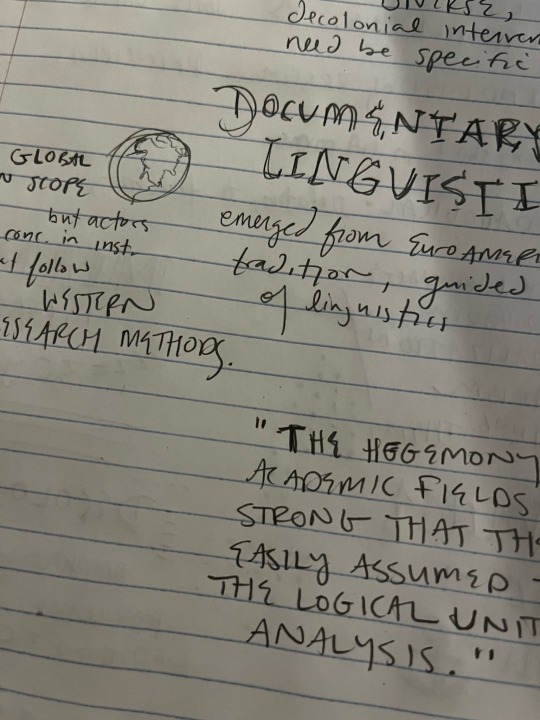

linguistics notes // decolonization · language revitalization
#linguistics#languages#studyblr#langblr#university student#study notes#linguist problems#indigenous#decolonize#decolonialism#saturn in 9th house#9th house#pluto in sagittarius#mercury in 11th
4 notes
·
View notes
Text
29/04/24: reblogs have been turned off for a few days. Check replies.
17/12/23 this masterlist has been completely, vetted, revamped and reformatted with free access to all reading and viewing material. It will be updated and edited periodically so please try and reblog the original post if you're able.
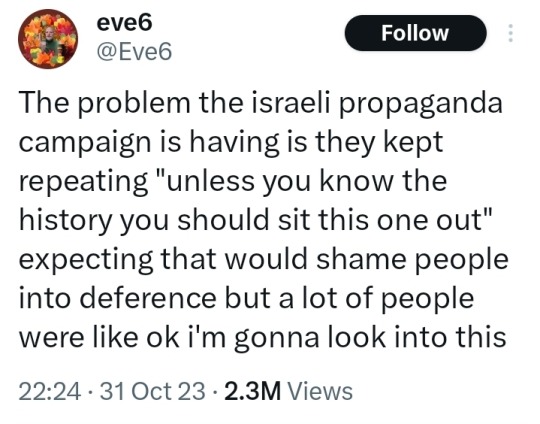
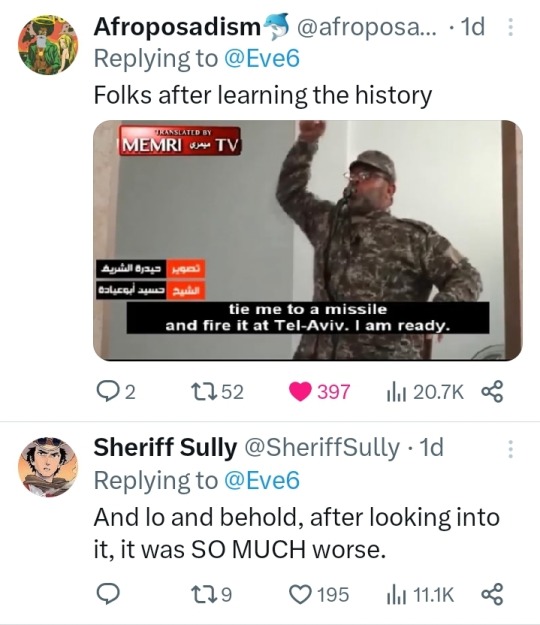

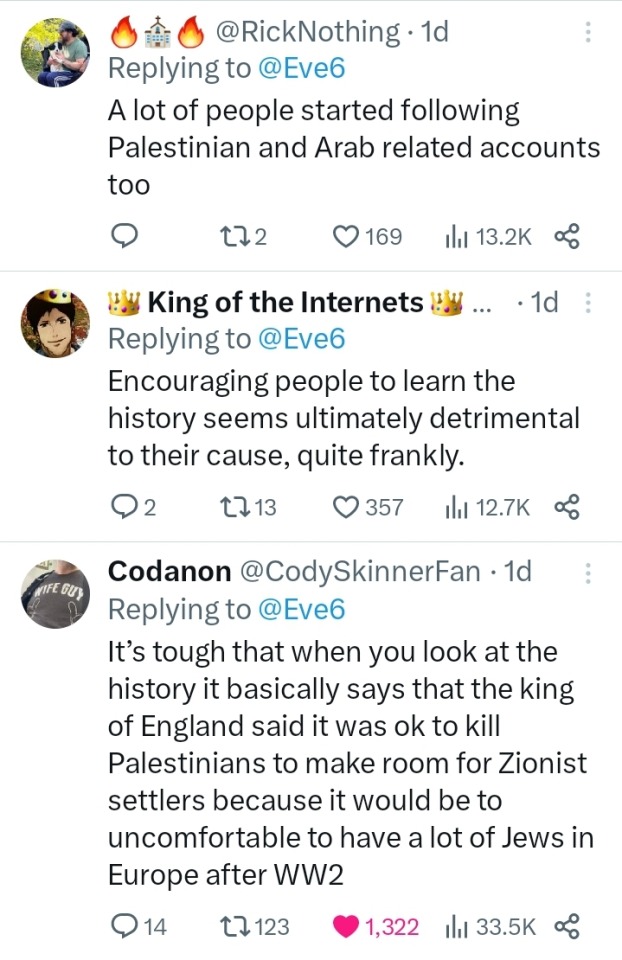
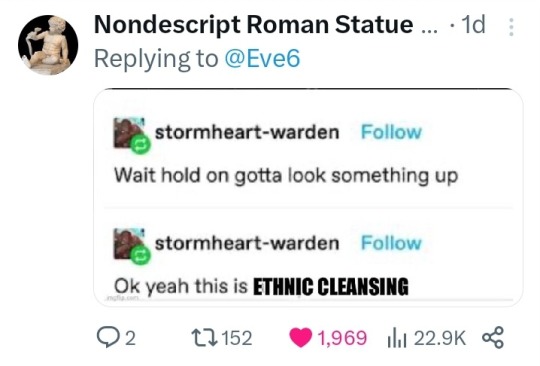
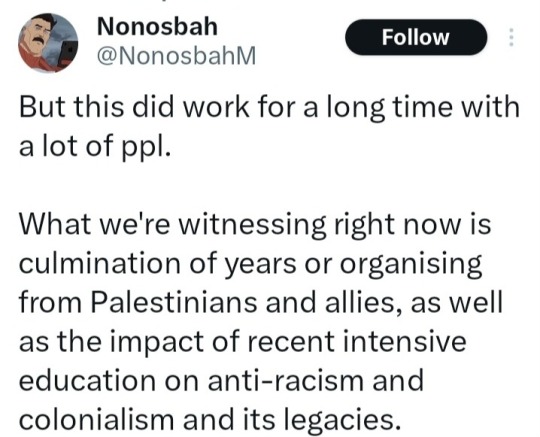
The Big Damn List Of Stuff They Said You Didn't Know
(Yes, it's a lot. Just choose your preferred medium and then pick one.)
Podcasts
Backgrounders and Quick Facts
Interactive Maps
Teach-Out Resources
Reading Material (free)
Films and Documentaries (free)
Non-Governmental Organizations
Social Media
How You Can Help
Podcasts
Cocktails & Capitalism: The Story of Palestine Part 1, Part 3
It Could Happen Here: The Cheapest Land is Bought with Blood, Part 2, The Balfour Declaration
Citations Needed: Media narratives and consent manufacturing around Israel-Palestine and the Gaza Siege
The Deprogram: Free Palestine, ft. decolonizatepalestine.com.
Backgrounders and Quick Facts
The Palestine Academy: Palestine 101
Institute for Middle East Understanding: Explainers and Quick Facts
Interactive Maps
Visualizing Palestine
Teach-Out Resources
1) Cambridge UCU and Pal Society
Palestine 101
Intro to Palestine Film + Art + Literature
Resources for Organising and Facilitating)
2) The Jadaliya YouTube Channel of the Arab Studies Institute
Gaza in Context Teach-in series
War on Palestine podcast
Updates and Discussions of news with co-editors Noura Erakat and Mouin Rabbani.
3) The Palestine Directory
History (virtual tours, digital archives, The Palestine Oral History Project, Documenting Palestine, Queering Palestine)
Cultural History (Palestine Open Maps, Overdue Books Zine, Palestine Poster Project)
Contemporary Voices in the Arts
Get Involved: NGOs and campaigns to help and support.
3) PalQuest Interactive Encyclopedia of the Palestine Question.
4) The Palestine Remix by Al Jazeera
Books and Articles
Free reading material
My Gdrive of Palestine/Decolonization Literature (nearly all the books recommended below + books from other recommended lists)
Five free eBooks by Verso
Three Free eBooks on Palestine by Haymarket
LGBT Activist Scott Long's Google Drive of Palestine Freedom Struggle Resources
Recommended Reading List
Academic Books
Edward Said (1979) The Question of Palestine, Random House
Ilan Pappé (2002)(ed) The Israel/Palestine Question, Routledge
Ilan Pappé (2006) The Ethnic Cleansing of Palestine, OneWorld Publications
Ilan Pappé (2011) The Forgotten Palestinians: A History of the Palestinians in Israel, Yale University Press
Ilan Pappé (2015) The Idea of Israel: A History of Power and Knowledge, Verso Books
Ilan Pappé (2017) The Biggest Prison On Earth: A History Of The Occupied Territories, OneWorld Publications
Ilan Pappé (2022) A History of Modern Palestine, Cambridge University Press
Rosemary Sayigh (2007) The Palestinians: From Peasants to Revolutionaries, Bloomsbury
Andrew Ross (2019) Stone Men: the Palestinians who Built Israel, Verso Books
Rashid Khalidi (2020) The Hundred Years’ War on Palestine: A History of Settler Colonialism and Resistance 1917–2017
Ariella Azoulay (2011) From Palestine to Israel: A Photographic Record of Destruction and State Formation, 1947-1950, Pluto Press
Ariella Azoulay and Adi Ophir (2012) The One-State Condition: Occupation and Democracy in Israel/Palestine, Stanford University Press.
Jeff Halper (2010) An Israeli in Palestine: Resisting Dispossession, Redeeming Israel, Pluto Press
Jeff Halper (2015) War Against the People: Israel, the Palestinians and Global Pacification
Jeff Halper (2021) Decolonizing Israel, Liberating Palestine: Zionism, Settler Colonialism, and the Case for One Democratic State, Pluto Press
Anthony Loewenstein (2023) The Palestine Laboratory: How Israel exports the Technology of Occupation around the World
Noura Erakat (2019) Justice for Some: Law and the Question of Palestine, Stanford University Press
Neve Gordon (2008) Israel’s Occupation, University of California Press
Joseph Massad (2006) The Persistence of the Palestinian Question: Essays on Zionism and the Palestinians, Routledge
Memoirs
Edward Said (1986) After the Last Sky: Palestine Lives, Columbia University PEdward Saidress
Edward Said (2000) Out of Place; A Memoir, First Vintage Books
Mourid Barghouti (2005) I saw Ramallah, Bloomsbury
Hatim Kanaaneh (2008) A Doctor in Galilee: The Life and Struggle of a Palestinian in Israel, Pluto Press
Raja Shehadeh (2008) Palestinian Walks: Into a Vanishing Landscape, Profile Books
Ghada Karmi (2009) In Search of Fatima: A Palestinian Story, Verso Books
Vittorio Arrigoni (2010) Gaza Stay Human, Kube Publishing
Ramzy Baroud (2010) My Father Was a Freedom Fighter: Gaza's Untold Story, Pluto Press
Izzeldin Abuelaish (2011) I Shall Not Hate: A Gaza Doctor’s Journey on the Road to Peace and Human Dignity, Bloomsbury
Atef Abu Saif (2015) The Drone Eats with Me: A Gaza Diary, Beacon Press
Anthologies
Voices from Gaza - Insaniyyat (The Society of Palestinian Anthropologists)
Letters From Gaza • Protean Magazine
Salma Khadra Jayyusi (1992) Anthology of Modern Palestinian Literature, Columbia University Press
ASHTAR Theatre (2010) The Gaza Monologues
Refaat Alreer (ed) (2014) Gaza Writes Back, Just World Books
Refaat Alreer, Laila El-Haddad (eds) (2015) Gaza Unsilenced, Just World Books
Cate Malek and Mateo Hoke (eds)(2015) Palestine Speaks: Narrative of Life under Occupation, Verso Books
Jehad Abusalim, Jennifer Bing (eds) (2022) Light in Gaza: Writings Born of Fire, Haymarket Books
Short Story Collections
Ghassan Kanafani, Hilary Kilpatrick (trans) (1968) Men in the Sun and Other Palestinian Stories, Lynne Rienner Publishers
Ghassan Kanafani, Barbara Harlow, Karen E. Riley (trans) (2000) Palestine’s Children: Returning to Haifa and Other Stories, Lynne Rienner Publishers
Atef Abu Saif (2014) The Book of Gaza: A City in Short Fiction, Comma Press
Samira Azzam, Ranya Abdelrahman (trans) (2022) Out Of Time: The Collected Short Stories of Samira Azzam
Sonia Sulaiman (2023) Muneera and the Moon; Stories Inspired by Palestinian Folklore
Essay Collections
Edward W. Said (2000) Reflections on Exile and Other Essays, Harvard University Press
Salim Tamari (2008) Mountain against the Sea: Essays on Palestinian Society and Culture, University of California Press
Fatma Kassem (2011) Palestinian Women: Narratives, histories and gendered memory, Bloombsbury
Ramzy Baroud (2019) These Chains Will Be Broken: Palestinian Stories of Struggle and Defiance in Israeli Prisons, Clarity Press
Novels
Sahar Khalifeh (1976) Wild Thorns, Saqi Books
Liyana Badr (1993) A Balcony over the Fakihani, Interlink Books
Hala Alyan (2017) Salt Houses, Harper Books
Susan Abulhawa (2011) Mornings in Jenin, Bloomsbury
Susan Abulhawa (2020) Against the Loveless World, Bloomsbury
Graphic novels
Joe Sacco (2001) Palestine
Joe Sacco (2010) Footnotes in Gaza
Naji al-Ali (2009) A Child in Palestine, Verso Books
Mohammad Sabaaneh (2021) Power Born of Dreams: My Story is Palestine, Street Noise Book*
Poetry
Fady Joudah (2008) The Earth in the Attic, Sheridan Books,
Ghassan Zaqtan, Fady Joudah (trans) (2012) Like a Straw Bird It Follows Me and Other Poems, Yale University Press
Hala Alyan (2013) Atrium: Poems, Three Rooms Press*
Mohammed El-Kurd (2021) Rifqa, Haymarket Books
Mosab Abu Toha (2022) Things You May Find Hidden in My Ear: Poems from Gaza, City Lights Publishers
Tawfiq Zayyad (2023) We Are Here to Stay, Smokestack Books*
The Works of Mahmoud Darwish
Poems
Rafeef Ziadah (2011) We Teach Life, Sir
Nasser Rabah (2022) In the Endless War
Refaat Alareer (2011) If I Must Die
Hiba Abu Nada (2023) I Grant You Refuge/ Not Just Passing
[All books except the ones starred are available in my gdrive. I'm adding more each day. But please try and buy whatever you're able or borrow from the library. Most should be available in the discounted Free Palestine Reading List by Pluto Press, Verso and Haymarket Books.]
Human Rights Reports & Documents
Information on current International Court of Justice case on ‘Legal Consequences arising from the Policies and Practices of Israel in the Occupied Palestinian Territory, including East Jerusalem’
UN Commission of Inquiry Report 2022
UN Special Rapporteur Report on Apartheid 2022
Amnesty International Report on Apartheid 2022
Human Rights Watch Report on Apartheid 2021
Report of the United Nations Fact-Finding Mission on the Gaza Conflict’ 2009 (‘The Goldstone Report’)
Advisory Opinion on the Legal Consequences of the Construction of a Wall in the Occupied Palestinian Territory, International Court of Justice, 9 July 2004
Films
Documentaries
Jenin, Jenin (2003) dir. Mohammed Bakri
Massacre (2005) dir. Monica Borgmann, Lokman Slim, Hermann Theissen
Slingshot HipHop (2008) dir. Jackie Reem Salloum
Waltz with Bashir (2008) dir. Ari Folman † (also on Amazon Prime)
Tears of Gaza (2010) dir. Vibeke Løkkeberg (also on Amazon Prime)
5 Broken Cameras (2011) dir. Emad Burnat (also on Amazon Prime)
The Gatekeepers (2012) dir. Dror Moreh (also on Amazon Prime)
The Great Book Robbery (2012) | Al Jazeera English
Al Nakba (2013) | Al Jazeera (5-episode docu-series)
The Village Under the Forest (2013) dir. Mark J. Kaplan
Where Should The Birds Fly (2013) dir. Fida Qishta
Naila and the Uprising (2017) (also on Amazon Prime)
GAZA (2019) dir. Andrew McConnell and Garry Keane
Gaza Fights For Freedom (2019) dir. Abby Martin
Little Palestine: Diary Of A Siege (2021) dir. Abdallah Al Khatib
Palestine 1920: The Other Side of the Palestinian Story (2021) | Al Jazeera World Documentary
Gaza Fights Back (2021) | MintPress News Original Documentary | dir. Dan Cohen
Innocence (2022) dir. Guy Davidi
Short Films
Fatenah (2009) dir. Ahmad Habash
Gaza-London (2009) dir. Dina Hamdan
Condom Lead (2013) dir. Tarzan Nasser, Arab Nasser
OBAIDA (2019) | Defence for Children Palestine
Theatrical Films
Divine Intervention (2002) | dir. Elia Suleiman (also on Netflix)
Paradise Now (2005) dir Hany Abu-Assad (also on Amazon Prime)
Lemon Tree (2008) (choose auto translate for English subs) (also on Amazon Prime)
It Must Be Heaven (2009) | dir. Elia Suleiman †
The Promise (2010) mini-series dir. Peter Kosminsky (Part 1, Part 2, Part 3, Part 4)
Habibi (2011)* dir. Susan Youssef
Omar (2013)* dir. Hany Abu-Assad †
3000 Nights (2015)* dir. Mai Masri
Foxtrot (2017) dir. Samuel Maoz (also on Amazon Prime)
The Time that Remains (2019) dir. Elia Suleiman †
Gaza Mon Amour (2020) dir. Tarzan Nasser, Arab Nasser †
The Viewing Booth (2020) dir. Ra'anan Alexandrowicz (on Amazon Prime and Apple TV)
Farha (2021)* | dir. Darin J. Sallam
Palestine Film Institute Archive
All links are for free viewing. The ones marked with a star (*) can be found on Netflix, while the ones marked † can be downloaded for free from my Mega account.
If you find Guy Davidi's Innocence anywhere please let me know, I can't find it for streaming or download even to rent or buy.
In 2018, BDS urged Netflix to dump Fauda, a series created by former members of IOF death squads that legitimizes and promotes racist violence and war crimes, to no avail. Please warn others to not give this series any views. BDS has not called for a boycott of Netflix. ]
Planning to link two separate posts here listing all the books in my drive and all the films I couldn't include here. Check back for updates.
NGOs
The Boycott, Divestment, Sanctions (BDS) Movement
Medical Aid for Palestinians
Euro-Mediterranean Human Rights Monitor
Palestine Defence for Children International
Palestinian Feminist Collective
Al-Shabaka: The Palestinian Policy Network
Addameer Prisoner Support and Human Rights Association
Institute for Palestine Studies
Al Haq
Artists for Palestine
The Palestine Museum
Jewish Currents
B’Tselem
DAWN
Social Media
Palestnians on Tumblr
@el-shab-hussein
@killyfromblame
@apollos-olives
@fairuzfan
@palipunk
@sar-soor
@nabulsi
@ibtisams
@wearenotjustnumbers2
@90-ghost (is in Gaza right now. Please donate to his GFM and boost it.)
@tamarrud
Allies and advocates (not Palestinian)
@bloglikeanegyptian beautiful posts that read like op-eds
@vyorei daily news roundups
@luthienne resistance through prose
@decolonize-the-left scoop on the US political plans and impacts
@feluka
(Please don't expect any of these blogs to be completely devoted to Palestine allyship; they do post regularly about it but they're still personal blogs and post whatever else they feel like. Do not harrass them.)
Gaza journalists
Motaz Azaiza IG: @motaz_azaiza | Twitter: @azaizamotaz9 | TikTok: _motaz.azaiza (left Gaza as of Jan 23)
Bisan Owda IG and TikTok: wizard_bisan1 | Twitter: @wizardbisan
Saleh Aljafarawi IG: @saleh_aljafarawi | Twitter: @S_Aljafarawi | TikTok: @saleh_aljafarawi97
Plestia Alaqad IG: @byplestia | TikTok: @plestiaaqad (left Gaza)
Wael Al-Dahdouh IG: @wael_eldahdouh | Twitter: @WaelDahdouh (left Gaza as of Jan 13)
Hind Khoudary IG: @hindkhoudary | Twitter: @Hind_Gaza
Ismail Jood IG and TikTok: @ismail.jood (announced end of coverage on Jan 25)
Yara Eid IG: @eid_yara | Twitter: @yaraeid_
Eye on Palestine IG: @eye.on.palestine | Twitter: @EyeonPalestine | TikTok: @eyes.on.palestine
Muhammad Shehada Twitter: @muhammadshehad2
(Edit: even though some journos have evacuated, the footage up to the end of their reporting is up on their social media, and they're also doing urgent fundraisers to get their families and friends to safety. Please donate or share their posts.)
News organisations
The Electronic Intifada Twitter: @intifada | IG: @electronicintifada
Quds News Network Twitter and Telegram: @QudsNen | IG: @qudsn (Arabic)
Times of Gaza IG: @timesofgaza | Twitter: @Timesofgaza | Telegram: @TIMESOFGAZA
The Palestine Chronicle Twitter: @PalestineChron | IG: @palestinechron | @palestinechronicle
Al-Jazeera Twitter: @AJEnglish | IG and TikTok: @aljazeeraenglish, @ajplus
Middle East Eye IG and TikTok: @middleeasteye | Twitter: @MiddleEastEye
Democracy Now Twitter and IG: @democracynow TikTok: @democracynow.org
Haaretz* Twitter: @Haaretz | IG: haaretzcom
Mondoweiss IG and TikTok: @mondoweiss | Twitter: @Mondoweiss
The Intercept Twitter and IG: @theintercept
MintPress Twitter: @MintPressNews | IG: mintpress
Novara Media Twitter and IG: @novaramedia
Truthout Twitter and IG: @truthout
[*Please note that Haaretz is an Israeli Liberal Zionist newspaper and heavily propagandized against Palestine. It's included here only as a Zionist critic of the Israeli government and IDF from within Israel.]
Palestnians on Other Social Media
Mouin Rabbani: Middle East analyst specializing in the Arab-Israeli conflict and Palestinian affairs. Twitter: @MouinRabbani
Noura Erakat: Legal scholar, human rights attorney, specialising in Israeli–Palestinian conflict. Twitter: @4noura | IG: @nouraerakat | (http://www.nouraerakat.com/)
Hebh Jamal: Journalist in Germany. IG and Twitter: @hebh_jamal
Ghada Sasa: PhD candidate in International Relations, green colonialism, and Islam in Canada. Twitter: @sasa_ghada | IG: @ghadasasa48
Taleed El Sabawi: Assistant professor of law and researcher in public health. Twitter: @el_sabawi | IG
Lexi Alexander: Filmmaker and activist. Twitter: @LexiAlex | IG: @lexialexander1
Mariam Barghouti: Writer, blogger, researcher, and journalist. Twitter: @MariamBarghouti | IG: @mariambarghouti
Rasha Abdulhadi: Queer poet, author and cultural organizer. Twitter: @rashaabdulhadi
Mohammed el-Kurd: Writer and activist from Jerusalem. IG: @mohammedelkurd | Twitter: @m7mdkurd
Ramy Abdu: Founder and Chairman of the Euro-Mediterranean Human Rights Monitor. Twitter: @RamyAbdu
Subhi: Founder of The Palestine Academy website. IG: @sbeih.jpg |TikTok @iamsbeih | Twitter: @iamsbeih
Allies
Lowkey (Kareem Dennis): Rapper, activist, video and podcast host for MintPress. Twitter: @LowkeyOnline IG: @lowkeyonline
Francesca Albanese: UN Special Rapporteur on the Occupied Territories. Twitter: @FranceskAlbs
Sana Saeed: Journalist and media critic, host and senior producer at Al-Jazeera Plus. IG: @sanaface | Twitter: @SanaSaeed
Shailja Patel: Poet, playwright, activist, founding member of Kenyans For Peace, Truth and Justice. Twitter: @shailjapatel
Jairo I. Fúnez-Flores: Researcher in curriculum studies, decolonial theory, social movements. Twitter: @Jairo_I_Funez
Jack Dodson: Journalist and Filmmaker. Twitter: @JackDodson IG: @jdodson4
Imani Barbarin: Writer, public speaker, and disability rights activist. IG: @crutches_and_spice | Twitter: @Imani_Barbarin | TikTok: @crutches_and_spice
Jewish Allies
Katie Halper: US comedian, writer, filmmaker, podcaster, and political commentator. IG and Twitter: @kthalps
Amanda Gelender: Writer. Twitter: @agelender | (https://agelender.medium.com/)
Yoav Litvin: Jerusalem-born Writer and Photographer. IG and Twitter: @nookyelur | (yoavlitvin.com)
Alana Lentin: Professor of Cultural and Social Analysis at Western Sydney University. Twitter: @alanalentin
Gideon Levy: anti-Zionist Israeli journalist and activist. Twitter: @gideonle
How You Can Help Palestine
How to be an Ally 101
URGENT‼️📢: Global Strike Guide
If any links are broken let me know. Or pull up the current post to check whether it's fixed.
"Knowledge is Israel's worst enemy. Awareness is Israel's most hated and feared foe. That's why Israel bombs a university: it wants to kill openness and determination to refuse living under injustice and racism."
— Dr. Refaat Alareer, (martyred Dec 6, 2023)
From River To The Sea Palestine Will Be Free 🇵🇸🇵🇸🇵🇸
-----
Edit 1: took the first video down because turns out the animator is a terf and it links to her blog. Really sorry for any distress.
Edit 2: All recommended readings + Haymarket recommendations + essential decolonization texts have been uploaded to my linked gdrive. I will adding more periodically. Please do buy or check them out from the library if possible, but this post was made for and by poor and gatekept Global South bitches like me.
Some have complained about the memes being disrespectful. You're actually legally obligated to make fun of Israeli propaganda and Zionists. I don't make the rules.
Edit 3: "The river to the sea" does not mean the expulsion of Jews from Palestine. Believing that is genocide apologia.
Edit 4: Gazans have specifically asked us to put every effort into pushing for a ceasefire instead of donations. "Raising humanitarian aid" is a grift Western governments are pushing right now to deflect from the fact that they're sending billions to Israel to keep carpet bombing Gazans. As long as the blockades are still in place there will never be enough aid for two million people. (UPDATE: PLEASE DONATE to the Gazan's GoFundMe fundraisers to help them buy food and get out of Rafah into Egypt. E-SIMs, food and medical supplies are also essential. Please donate to the orgs linked in the How You Can Help. Go on the strikes. DO NOT STOP PROTESTING.)
Edit 5: Google drive link for academic books folder has been fixed. Also have added a ton of resources to all the other folders so please check them out.
Edit 6: Added interactive maps, Jadaliya channel, and masterlists of donation links and protest support and of factsheets.
The twitter accounts I reposted as it was given to me and I just now realized it had too many Israeli voices and almost none of the Palestinians I'm following, so it's being edited. Check back for more. I also removed sources like Jewish Voices of Peace and Breaking the Silence that do good work but have come under fair criticism from Palestinians.
Edit 7: Complete reformatting
Edit 8: Complete revamping of the social media section. It now reflects my own following list.
Edit 9: removed some more problematic people from the allies list. Remember that the 2SS is a grift that's used to normalize violence and occupation, kids. Supporting the one-state solution is lowest possible bar for allyship. It's "Free Palestine" not "Free half of Palestine and hope Israel doesn't go right back to killing them".
Edit 10: added The Palestine Directory + Al Jazeera documentary + Addameer. This "100 links per post" thing sucks.
Edit 11: more documentaries and films
Edit 12: reformatted reading list
Edit 13: had to remove @palipunk's masterlist to add another podcast. It's their pinned post and has more resources Palestinian culture and crafts if you want to check it out
#free palestine#palestine resources#palestine reading list#decolonization#israel palestine conflict#israel palestine war#british empire#american imperialism#apartheid#social justice#middle east history#MENA#arab history#anti zionism#palestinian art#palestinian history#palestinian culture#palestinian genocide#al nakba#ethnic cleansing#war crimes#racism#imperialism#colonialism#british colonialism#knee of huss#ask to tag#Youtube
77K notes
·
View notes
Text
Israel has cut water, electricity and food to Palestinians in Gaza. They are buying 10.000 M16 rifles and plan to distribute to civilian settlers in the West Bank to hunt down Palestinians. They're bombing the only way out of Gaza through Egypt, after telling refugees to flee through it, and have threatened the Egyptian government in case they let aid trucks pass through. Entire families, generations, are being wiped out and left to wander the streets hoping they don't get bombed.
Palestinians are using their last minutes of battery to let the world know about their genocide and are being met with a wall of "What about Hamas? What about the beheaded babies? Killing children on either side is bad!" even though the propaganda claims have been debunked over and over again. How cruel is it to ask somebody to condemn themselves before their last words? Or before grieving the loss of their entire families? When there's no such disclaimer to Israelis even though their government has shown over and over genocidal intent? Like who are you even trying to appease? What will your wishy washy statement do against decades of zionist thought infiltrating evangelical and Jewish stablishmemts?
Take action. Israel will fall back if public opinion turns its tide. The UK fell back on its bloody decision to cut aid to Palestine under public scrutiny. The USAmerican empire spends $3.8 billion dollars annually solely on this proxy war while its people suffer under a progressively military regime as well. News outlets are canceling last minute on Palestinian speakers while letting Israelis tell lies unchecked. Palestinian refugees are being targeted in ICE establishments and mosques are already being hounded by the FBI. France and Germany have banned pro-Palestine protests, while Netherlands and the UK have placed restrictions . You have the chance to stop this from turning into repeat of the Iraq war.
I want to do something but there's hardly anything for me to do from Brasil besides spreading the word and not letting these testimonies fall on deaf ears. I'm asking you to do this same ant work from wherever you are.
Follow:
Eye On Palestine (instagram / twitter)
Mohammed El-Kurd (instagram / twitter)
Decolonize Palestine (website with a chronological explanation of the occupation and debunking myths)
Muhammad Shehada (twitter)
Plestia Alaqad (directly from Gaza. Many of her videos are interrupted by bombs)
If there's a protest in your city, please attend. Here's an international calendar of events:
Friday, October 13
ALBUQUERQUE, NM (US) – Fri Oct. 13, 3 pm, UNM Bookstore, University of New Mexico. Organized by Southwest Coalition for Palestine.
BERKELEY, CALIFORNIA (US) – Fri Oct 13, 6 pm, Sproul Hall (Vigil), University of California Berkeley. Organized by Bears for Palestine.
DOUAIS, FRANCE – Fri Oct 13, 6:30 pm, Place de’Armes.
GOTHENBURG, SWEDEN – Fri Oct 13, 5:30 pm, Brunnsparken. Organized by Palestinska samordningsgruppen Gothenburg.
GREENSBORO, NC (US) – Fri Oct. 13, 4 pm, Wendover Village, 4203 W Wendover Ave, Greensboro, NC. Organized by Muslims for a Better NC.
LONDON, ENGLAND – Fri Oct 13, 5 pm, Keir Starmer’s Office, Crowndale Center, 218 Eversholt St, London. Organized by IJAN UK.
MEANJIN/BRISBANE, AUSTRALIA – Fri Oct 13, 6 pm, King George Square.
MIAMI, FL (US) – Fri Oct 13, 4:30 pm, Bayfront Park. Organized by Troika Kollectiv.
NAPOLI, ITALY – Fri Oct 13, 4:30 pm, Piazza Garibaldi, Napoli. Organized by GPI and Centro Culturale Handala Ali.
NGUNNAWAL/CANBERRA, AUSTRALIA – Fri Oct 13, 5:30 pm, Carema Place.
PERTH/BOORLOO, AUSTRALIA – Fri Oct. 13, 5:30 pm, Murray Street Hall, Boorloo/Perth. Organized by Friends of Palestine WA.
PORTLAND, OREGON (US) – Fri Oct 13, 3 pm, 1200-1220 SW 5th Ave, Portland.
PORT RICHEY, FL (US) – Fri Oct 13, 7:30 am, Route 19 and Ridge Road, Port Richey. Sponsored by: Florida Peace Action Network; Partners for Palestine; CADSI
PRETORIA, SOUTH AFRICA – Friday, Oct. 13, 7 pm, UP Main Campus, DSA Building opposite Thuto. Organized by PSC UP.
WITSWATERSRAND UNIVERSITY (SOUTH AFRICA) – Fri Oct 13, 1 pm, Great Hall Piazza, Flag demonstration. Organized by Wits PSC.
Saturday, October 14
ABERDEEN, SCOTLAND – Sat, Oct. 14, 2 pm, St. Nichlas Square. Organized by Scottish PSC.
AUCKLAND, NEW ZEALAND – Sat Oct 14, 2 pm, Aotea Square, Queens St, 291-2997 Queen St. Organized by PSN Aotearoa.
DETROIT/DEARBORN, MICHIGAN (US) – Sat Oct 14, 2 pm, Ford Woods Park, 5700 Greenfield Road. Organized by SAFE, PYM, SJP, Handala Coalition, more.
DUNDEE, SCOTLAND – Sat, Oct. 14, 2 pm, Place TBA. Organized by Scottish PSC.
EDINBURGH, SCOTLAND – Sat, Oct 14, 2 pm, Princes Street at Foot of the Mound. Organized by Scottish PSC.
FRANKFURT, GERMANY – Sat Oct 14, 3 pm Hauptwache, Frankfurt am Main. Sponsored by Palestina eV, Migrantifa Rhein-Main and more.
GLASGOW, SCOTLAND – Sat. Oct 14, 2 pm, Buchanan Steps. Organized by Scottish PSC.
HOUSTON, TEXAS (US) – Sat Oct 14, 2 pm, City Hall, 901 Bagby St. Organizd by PYM, PAC, USPCN, SJP and more.
LIVERPOOL, ENGLAND – Sat Oc 14, 12 pm, Church St. Organized by FRFI.
LONDON, ENGLAND – Sat Oct 14, 12 pm, BBC Portland Place, London. Organized by a broad coalition.
MILANO, ITALY – Sat. Oct 14, 3:30 pm, Piazza San Babila. Organized by Young Palestinians of Italy, UDAP, Palestinian Community, Association of Palestinians.
ORLANDO, FLORIDA – Sat Oct 14, 3 pm, Lake Eola at Robinson and Eola, Orland. Organized by Florida Palestine Network.
TORINO, ITALY – Sat. Oct. 14, 3 pm, Piazza Crispi. Organized by Progetto Palestina.
VALPARAISO, CHILE – Sat Oct 14, 6 pm, Plaza Victoria, Valparaiso. Organized by Comite Chileno de Solidaridad con Palestina.
WASHINGTON, DC (US) – Sat Oct 14, 1 pm, Lafayette Square. Organized by AMP.
Sunday, October 15
AMSTERDAM, NETHERLANDS – Sun Oct 15, 2 pm, March from Dam Square to Jonas Daniel Meijer plein.
NAARM/MELBOURNE, AUSTRALIA – Sun Oct 15, State Library Victoria.
TARDANYA/ADELAIDE, AUSTRALIA – Sun Oct 15, 2 pm, Parliament House.
AUSTIN, TEXAS (US) – Sun Oct 15, 3 pm, Texas Capitol. Organized by PSC ATX.
GADIGAL/SYDNEY, AUSTRALIA – Sun Oct 15, 1 pm, Sydney Town Hall.
SANTIAGO, CHILE -Sun Oct 15, 11 am, Plaza Dignidad, Santiago. Organized by Comite Chileno de Solidaridad con Palestina.
28K notes
·
View notes
Text
#slavery#slave#yale university#yale#race#racism#india#indian#university#history#slave trade#united states#diversity#british#england#madras#colonialism#british colonialism#colonial history#colonial america#decolonisation#decolonization#elihu yale#biography#historical#east india company#education#woke#news#abolitionist
1 note
·
View note
Text
youtube
By: Louisa Clarence-Smith
Published: Dec 29. 2022
Maths professors at top UK universities will warn ministers on Thursday that academics are too scared to challenge damaging attempts to “decolonise” the curriculum.
A dozen leading academics have written to Claire Coutinho, the Education Minister, calling for more protections for free speech at universities, where many professors fear it is too “personally risky” to challenge the decolonisation agenda.
For maths degrees, professors are being pressured to explain how they are presenting a “multicultural and decolonised view” of the subject. In a recent consultation, the Quality Assurance Agency, which advises universities on course standards, said maths professors need to “present the work of a diverse group” of mathematicians, and ensure students are aware if they had “connections to the slave trade, racism or Nazism.”
A group of professors will warn on Thursday that such guidance “risks politicising the subject of mathematics and presenting a skewed perspective on its history.”
'Personally risky'
They said in a joint letter, seen by The Telegraph, that it also “infringes on the academic freedom of mathematicians to teach their subject according to their best professional judgement”. However, they warned that academics “who challenge orthodoxies on topics such as gender identification and diversity face physical intimidation from student activists”.
“Many mathematicians see it as personally risky to suggest that 'decolonising the curriculum' might not be the best way to encourage more Black and minority ethnic people to take up mathematics,” they added.
Signatories of the letter include Prof Alan Sokal of University College London, Prof Abhishek Saha of Queen Mary University of London, Prof Jane Hutton, a medical statistician who works at the University of Warwick, and Dr Yuri Bazlov from the University of Manchester.
They are urging the Government to fight to pass the Higher Education (Freedom of Speech) Bill in its original form, despite opposition in the House of Lords. Clause 4 of the bill would give academics and students the power to sue universities if their freedom of speech rights are breached. The Government tabled amendments to the bill which would mean academics could only use those powers as a “last resort”, after first pursuing complaints through the procedures of the relevant university and the higher education regulator.
Personal cost of raising complaints 'far too high'
However, responding to the amendments, the mathematicians said: “We do not think this would give us the protection that we need. Universities have vast resources and power compared to individual academics. If academics are required to exhaust all internal processes…and then spend up to 12 months taking their complaint through the Office for Students before they can begin the lengthy process of going to the courts, we believe that the personal cost of raising any complaints would be far too high, rendering the system ineffective.” Ms Coutinho has previously said that the Government remains “resolute in our commitment that academics and speakers will have the right to go to court where this fundamental right has been denied.”
A spokesperson for Universities UK said: “Universities work hard to create the right conditions to protect and promote free speech and academic freedom across their campuses, and there are already significant legal duties placed on universities to uphold freedom of speech. The Government’s proposed changes to the Freedom of Speech Bill are helpful in making the new legal tort more targeted in scope, reducing the risk of university resources being wasted defending frivolous or vexatious claims.”
==
Secular blasphemy laws.
#Andrew Doyle#Jane Hutton#Free Speech Nation#mathematics#woke math#decolonize#decolonize everything#decolonize math#academic corruption#corruption of education#intellectual laziness#cultural imperialism#University of Warwick
30 notes
·
View notes